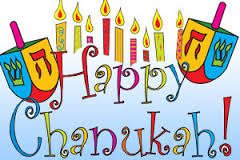The Reading
The Summary
Shemuel Alef Chapter 10
Shemuel anoints Shaul as the first King of Israel and informs him that, on his way back home he will experience three signs that testify to the fact that Hashem’s plan for the Jewish people is now manifesting itself in his personal life. First, Shaul will meet two men near the Tomb of Rachel who will substantiate Shemuel’s message that the donkeys he had originally gone looking for had indeed been found and who will also confirm Shaul’s hunch that his father would be preoccupied with worry about his son’s whereabouts by now.
At the second “rest stop” along his journey, Shaul is told that he will encounter three men on their way to worship God at Bet El, and that these individuals will present him with a gift of two loaves of bread. Finally, Shaul is informed that he will meet and join together with a band of prophets accompanied by four types of musical instrument and will undergo a spiritual transformation whereby he himself is granted prophetic inspiration.
Shemuel also foretells that the nation will soon gather in Gilgal and that Shaul is to wait for Shemuel’s arrival for seven days before offering any sacrifices or heading out to war; we will read more about this incident and its outcome in a future chapter. All of the signs occur as predicted by Shemuel; nevertheless, when he returns home, Shaul does not share any of the details of his new appointment with his family members.
Shemuel convenes a national meeting at Mitzpah and, after once again castigating the people for succumbing to their weaknesses and demanding a king, conducts a lottery through which Shaul is identified as the chosen monarch. Surprisingly, however, he is nowhere to be found, having hid himself amongst the luggage to avoid notice. Shemuel triumphantly introduces the modest yet physically impressive new king to his subjects, many of whom immediately accept his authority and bring gifts of tribute to him. Nonetheless, a significant group of citizens are unconvinced of Shaul’s ability to lead them and refuse to offer him any obeisance. Shaul, with characteristic modesty, ignores these slights.
There is much to comment on in this chapter. I will point out just a few highlights. The signs provided by Shemuel, rather than serving to reassure him or assuage his doubts, instead seem to chart the course of the evolution of Shaul himself from a modest and dutiful seeker of donkeys, to a recipient of tribute from those seeking Hashem, to finally one who encounters Hashem directly through the intimate experience of prophecy. The progression in numbers – two men are involved in the first sign, three in the second, and four instruments in the third – reflects the notion of elevation and ascendance in Shaul himself, it is indicative of a process of growth he is undergoing.
There is another key element to the signs that should be mentioned. On one hand, the fact that the first sign is manifest near the Tomb of Rachel has symbolic import; Shaul, a member of the Tribe of Benjamin, is a descendant of Rachel, and this pedigree justifies his claim to the throne. At the same time, the phrase “is Shaul also among the prophets”, coined when people observed him in the state of prophetic inspiration, emphasizes that one’s background and lineage is insignificant – what counts is who you are, not necessarily where you came from. We see, then, that a delicate balance must be struck between the politics of royal lineage and heritage – important to ensure that a king’s authority will be accepted by the populace – and the requirements of moral character, knowledge and wisdom that determine whether the leadership provided by the king will be accepted by the Almighty.
Shaul’s excessive modesty is also a subject worthy of consideration. While it is praised in some Midrashim as a testimony to his greatness, other Rabbinic sources construe it as reflecting a lack of confidence or assertiveness that would be unbecoming of a monarch. The truth is that the career of Shaul ultimately substantiates the negative assessment of his modesty – it was a symptom of his insecurity, need for human approval and fear of rejection by his brethren/subjects, rather than a genuine and heartfelt humility rooted in an awareness of the Creator that would have given him the strength to withstand the temptation to capitulate to peer pressure. And, as upcoming chapters will reveal, this weakness proved to be a fatal flaw for Shaul in the long run.



You must be logged in to post a comment.